Best Futures Brokers in the UK 2026
Choosing the right futures broker isn’t just about ticking boxes — it’s about finding a platform that gives you the tools, stability, and support to trade effectively.

- expertise:
- CFD Trading, Forex, Derivatives, Risk Management
- credentials:
- Chartered ACII (2018) · Trading since 2012
- tested:
- 40+ forex & CFD platforms with live accounts

- expertise:
- Broker Comparison, ISA Strategy, Portfolio Management
- credentials:
- Active investor since 2013 · 11+ years experience
- tested:
- 40+ brokers with funded accounts
How We Test
Real accounts. Real money. Real trades. No demo accounts or press releases.
What we measure:
- Spreads vs advertised rates
- Execution speed and slippage
- Hidden fees (overnight, withdrawal, conversion)
- Actual withdrawal times
Scoring:
Fees (25%) · Platform (20%) · Assets (15%) · Mobile (15%) · Tools (10%) · Support (10%) · Regulation (5%)
Regulatory checks:
FCA Register verification · FSCS protection
Testing team:
Adam Woodhead (investing since 2013), Thomas Drury (Chartered ACII, 2018), Dom Farnell (investing since 2013) — 50+ platforms with funded accounts
Quarterly reviews · Corrections: info@theinvestorscentre.co.uk
Disclaimer
Not financial advice. Educational content only. We're not FCA authorised. Consult a qualified advisor before investing.
Capital at risk. Investments can fall. Past performance doesn't guarantee future results.
CFD warning. 67-84% of retail accounts lose money trading CFDs. High risk due to leverage.
Contact: info@theinvestorscentre.co.uk
Quick Answer: What is the Best Futures Broker in the UK?
Heading into 2026, IG remains our top pick for futures trading in the UK. It combines FCA oversight, institutional-grade execution, and access to a wide range of global markets. Whether you’re scaling up as an active trader or refining a long-term strategy, IG offers the depth and reliability serious futures traders need.
How Do the Best Futures Brokers Rank?
| Rank | Broker | Key Strength | Regulation | Fees | Best For |
|---|---|---|---|---|---|
| 1 | IG | Market depth, execution quality | FCA-regulated | Competitive | Active futures traders |
| 2 | eToro | Social trading, user-friendly | FCA-regulated | Low, transparent | Beginners & casual traders |
| 3 | SpreadEX | Flexible spreads, UK focus | FCA-regulated | Moderate | UK-based traders |
| 4 | Interactive Brokers | Low costs, advanced tools | FCA-regulated | Very low | Professionals & institutions |
| 5 | Saxo | Pro-grade platforms | FCA-regulated | Higher | Experienced traders |
| 6 | AvaTrade | Education & risk tools | Central Bank of Ireland | Moderate | Learners & cautious traders |
| 7 | Trading 212 | Commission-free trading | FCA-regulated | Zero commission* | Beginners & mobile traders |
*Other fees may apply. See terms and fees.

When Investing, Your Capital is at Risk.

61% of retail CFD accounts lose money when trading CFDs with this provider.
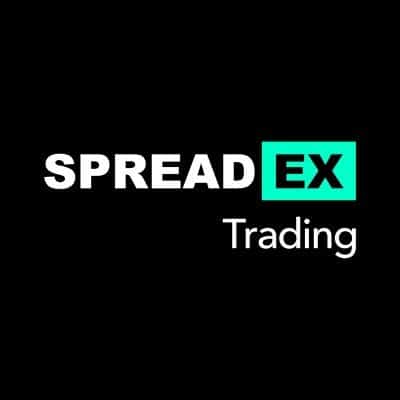
65% of retail CFD accounts lose money.

62.5% of Retail CFD Accounts Lose Money
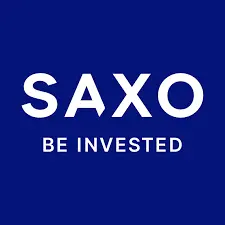
64% of retail CFD accounts lose money.

76% of retail CFD accounts lose money.

When Investing, Your Capital is at Risk.
Top 7 Futures Brokers Reviewed
- IG – Comprehensive market access with reliable execution.
- eToro – Innovative social trading with diverse assets.
- SpreadEX – Flexible futures trading with competitive spreads.
- Interactive Brokers – Advanced tools and low trading costs.
- Saxo – Professional-grade platform with extensive features.
- AvaTrade – Strong educational resources and risk management.
- Trading 212 – Commission-free trading with intuitive interface.

IG – Comprehensive Market Access with Reliable Execution
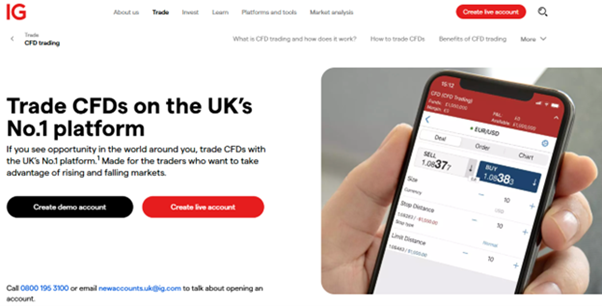
Pros
- Extensive futures and CFD markets
- Strong research and analysis tools
- Excellent execution speeds
Cons
- Higher minimum deposits than some brokers
- Platform may overwhelm beginners
- Fees not always the lowest
What Are the Fees and Costs of This Broker?
IG charges competitive spreads on futures contracts, with overnight financing for leveraged positions. While not the cheapest, costs are transparent. Inactivity fees apply after prolonged non-use, so traders should remain active to avoid extra charges.
Which Platforms and Tools Does This Broker Offer?
IG offers web, mobile, and advanced trading platforms, including ProRealTime and MT4 integration. Tools include advanced charting, custom indicators, and automated trading options. The variety suits active traders, though beginners may find the advanced platforms complex initially.
Is This Broker FCA-Regulated and Safe to Use?
Yes. IG is FCA-regulated, one of the most trusted UK brokers, with strict compliance and client fund protection. It has decades of experience and is considered safe, with strong risk management systems in place for futures trading.
Who Is This Broker Best Suited For?
IG is best for active or experienced traders needing extensive market access and advanced trading tools. Beginners may also benefit from IG’s education, though the platform’s depth is particularly attractive to those trading futures frequently and with higher volumes.

eToro – Innovative Social Trading with Diverse Assets
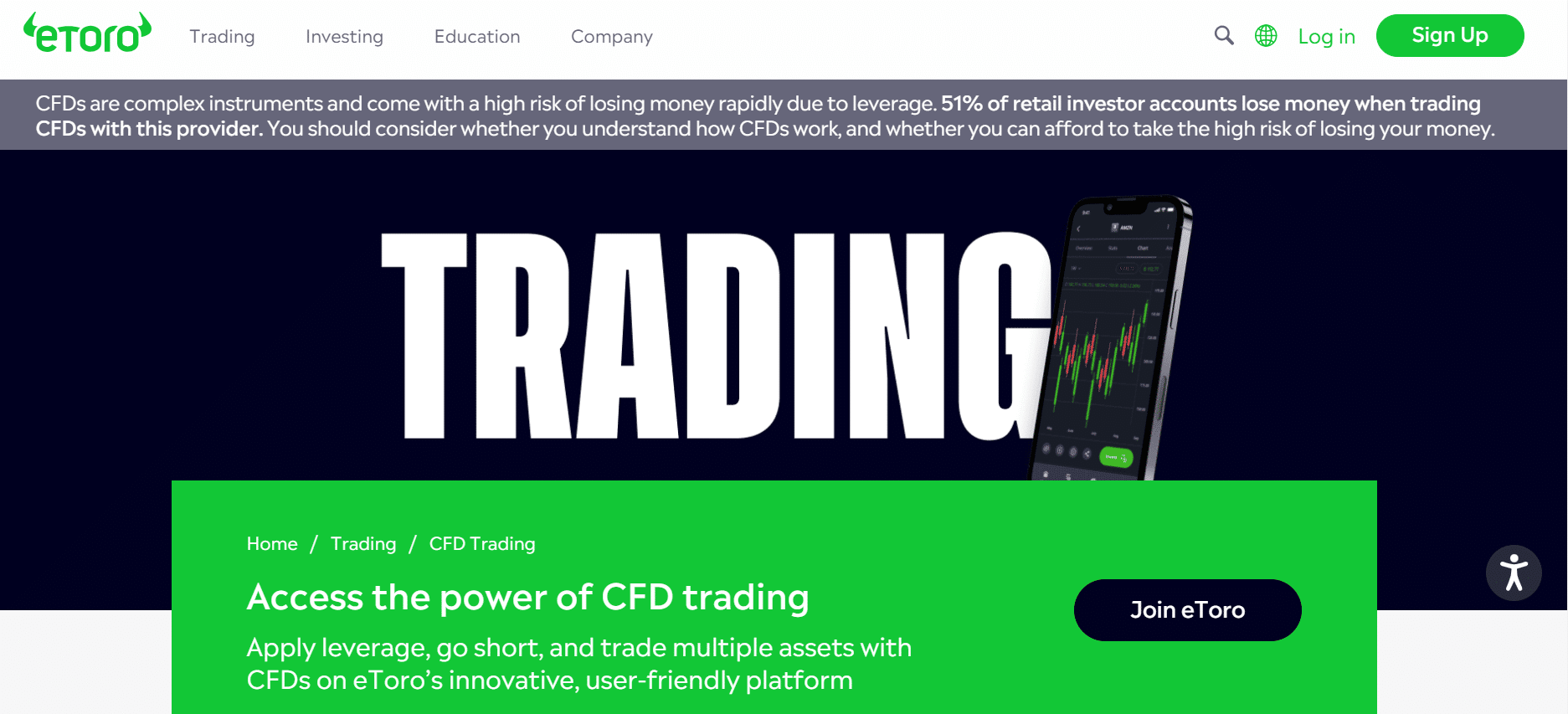
Pros
- Social and copy trading features
- User-friendly web and mobile platforms
- Broad asset coverage including futures and CFDs
Cons
- Limited advanced futures tools
- Higher spreads than some competitors
- Not ideal for professional high-frequency traders
What Are the Fees and Costs of This Broker?
eToro offers zero stock commission but applies spreads on futures and CFDs. Overnight financing and withdrawal fees may apply. While transparent, spreads can be higher than competitors, so active futures traders should calculate their overall trading costs carefully before committing.
Which Platforms and Tools Does This Broker Offer?
The eToro platform is intuitive, with mobile and web versions offering charting, portfolio tracking, and social trading. It’s excellent for beginners but lacks advanced futures-specific tools found in platforms like Interactive Brokers or Saxo, limiting appeal for complex trading strategies.
Is This Broker FCA-Regulated and Safe to Use?
Yes. eToro is FCA-regulated, offering client fund segregation and investor protections. It maintains a strong reputation for security. However, as with all leveraged brokers, safety depends on user practices and understanding of the risks involved in futures and derivatives trading.
Who Is This Broker Best Suited For?
eToro is ideal for beginners or casual traders who value simplicity, regulation, and social copy trading. It’s also suitable for those seeking multi-asset exposure, though advanced or professional futures traders may prefer brokers offering deeper analytical tools and lower spreads.

SpreadEX – Flexible Futures Trading with Competitive Spreads
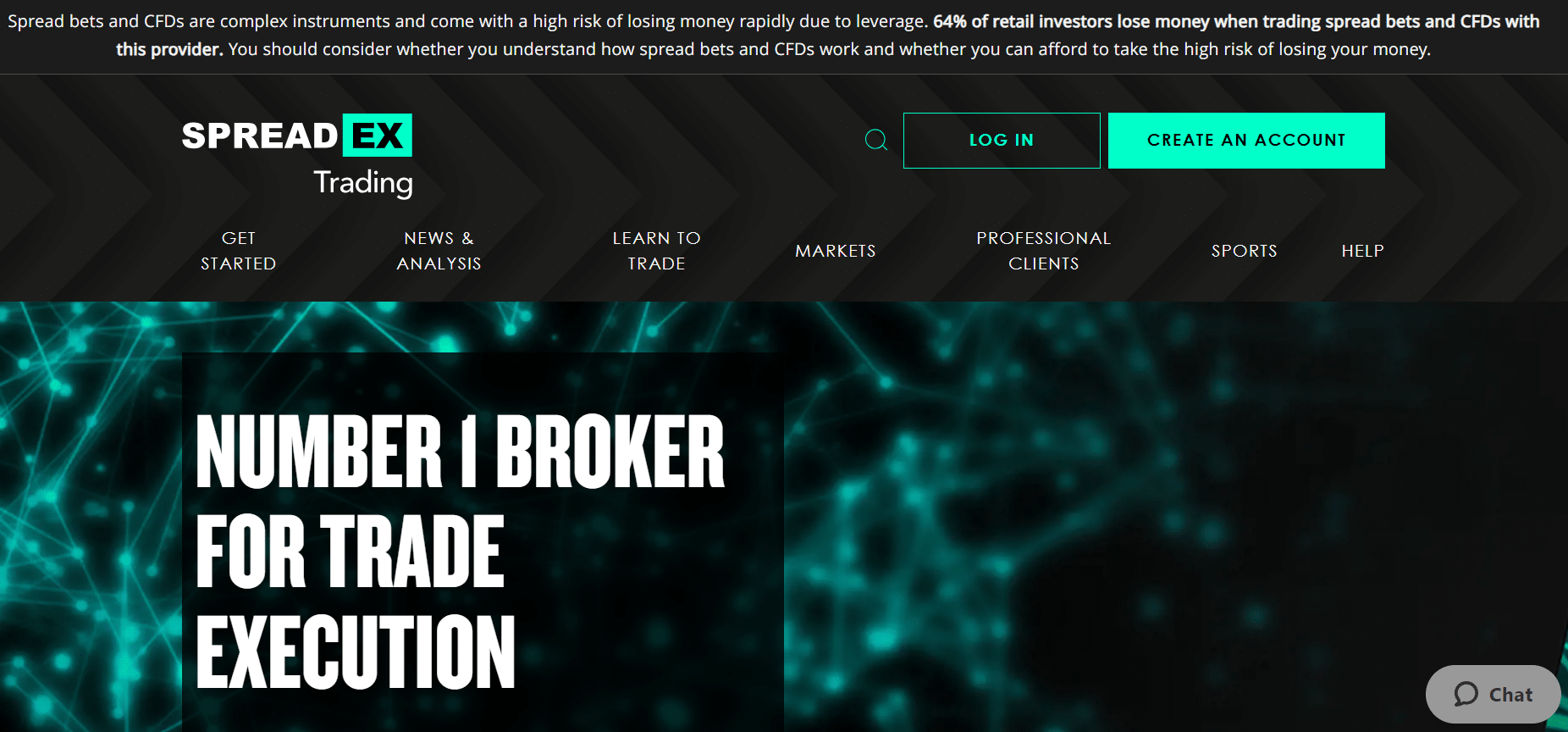
Pros
- Tight spreads for active traders
- UK-focused broker with strong service
- Simple, intuitive platform
Cons
- Smaller range than global competitors
- Fewer advanced tools
- Limited international reach
What Are the Fees and Costs of This Broker?
SpreadEX offers competitive spreads and no hidden charges. Its costs are attractive for frequent traders, though spreads can widen in volatile markets. Overall, it provides good value for those focused on futures within a UK-centric trading environment.
Which Platforms and Tools Does This Broker Offer?
SpreadEX provides a clean, user-friendly trading platform designed for efficiency. While it covers the essentials well, it lacks the advanced research and analytical tools offered by larger brokers, making it more appealing to traders seeking simplicity over depth.
Is This Broker FCA-Regulated and Safe to Use?
Yes. SpreadEX is FCA-regulated, ensuring compliance and client protection. While smaller than global competitors, it has a strong UK reputation for reliability and service. Security is robust, though international traders may prefer bigger platforms with wider global oversight.
Who Is This Broker Best Suited For?
SpreadEX is ideal for UK traders wanting competitive spreads and straightforward trading without overwhelming tools. It’s a good fit for those who prioritise simplicity and low costs, rather than global market coverage or highly advanced trading platforms.

Interactive Brokers – Advanced Tools and Low Trading Costs

Pros
- Industry-leading low trading costs
- Huge market access worldwide
- Professional-grade platforms and tools
Cons
- Steeper learning curve
- Platform complexity may overwhelm beginners
- Inactivity fees for some accounts
What Are the Fees and Costs of This Broker?
Interactive Brokers is renowned for extremely low commissions and tight spreads. Futures trading is cost-effective, especially for high-volume traders. While fees are minimal, beginners may find account requirements and occasional inactivity charges less appealing.
Which Platforms and Tools Does This Broker Offer?
IBKR’s Trader Workstation is one of the most advanced platforms available, with deep analytics, algorithmic trading, and customisable dashboards. It also supports mobile and web trading. The extensive tools suit professionals but require time to master effectively.
Is This Broker FCA-Regulated and Safe to Use?
Yes. Interactive Brokers is FCA-regulated in the UK and highly trusted worldwide. It is considered one of the safest brokers, with strong compliance, risk management, and a robust long-standing track record for professional futures trading.
Who Is This Broker Best Suited For?
Interactive Brokers is best for professional traders, institutions, or highly experienced individuals seeking global market access, low costs, and sophisticated tools. It is less suited for beginners due to platform complexity and account requirements.

Saxo – Professional-Grade Platform with Extensive Features
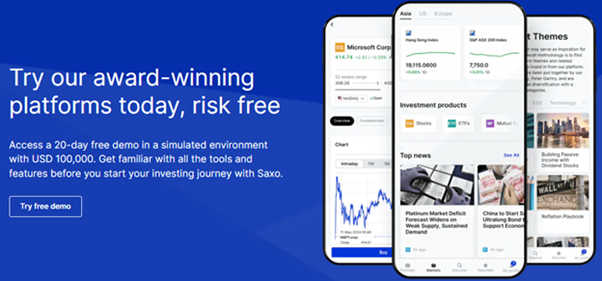
Pros
- Pro-level platforms with extensive charting
- Broad futures and derivatives markets
- Strong global reputation
Cons
- Higher minimum deposits
- Fees above budget brokers
- Steeper learning curve for casual users
What Are the Fees and Costs of This Broker?
Saxo’s pricing is transparent but typically higher than discount brokers. Futures fees include commissions and spreads, with tiered pricing for larger accounts. It’s competitive for professionals but may be costly for smaller retail traders.
Which Platforms and Tools Does This Broker Offer?
SaxoTraderGO and SaxoTraderPRO provide advanced charting, order execution, and risk management. These professional-grade platforms are powerful and reliable but require some experience to use effectively. Saxo’s research and data coverage is among the best in the industry.
Is This Broker FCA-Regulated and Safe to Use?
Yes. Saxo is FCA-regulated (FRN 551422) and globally respected, with robust financial stability. It segregates client funds and meets strict compliance requirements, making it a safe choice for serious futures traders looking for a professional-grade platform.
Who Is This Broker Best Suited For?
Saxo is best for experienced traders, professionals, or high-net-worth individuals who value deep functionality, global market access, and top-tier tools. It is less suitable for beginners due to higher fees and complex platforms.

AvaTrade – Strong Educational Resources and Risk Management
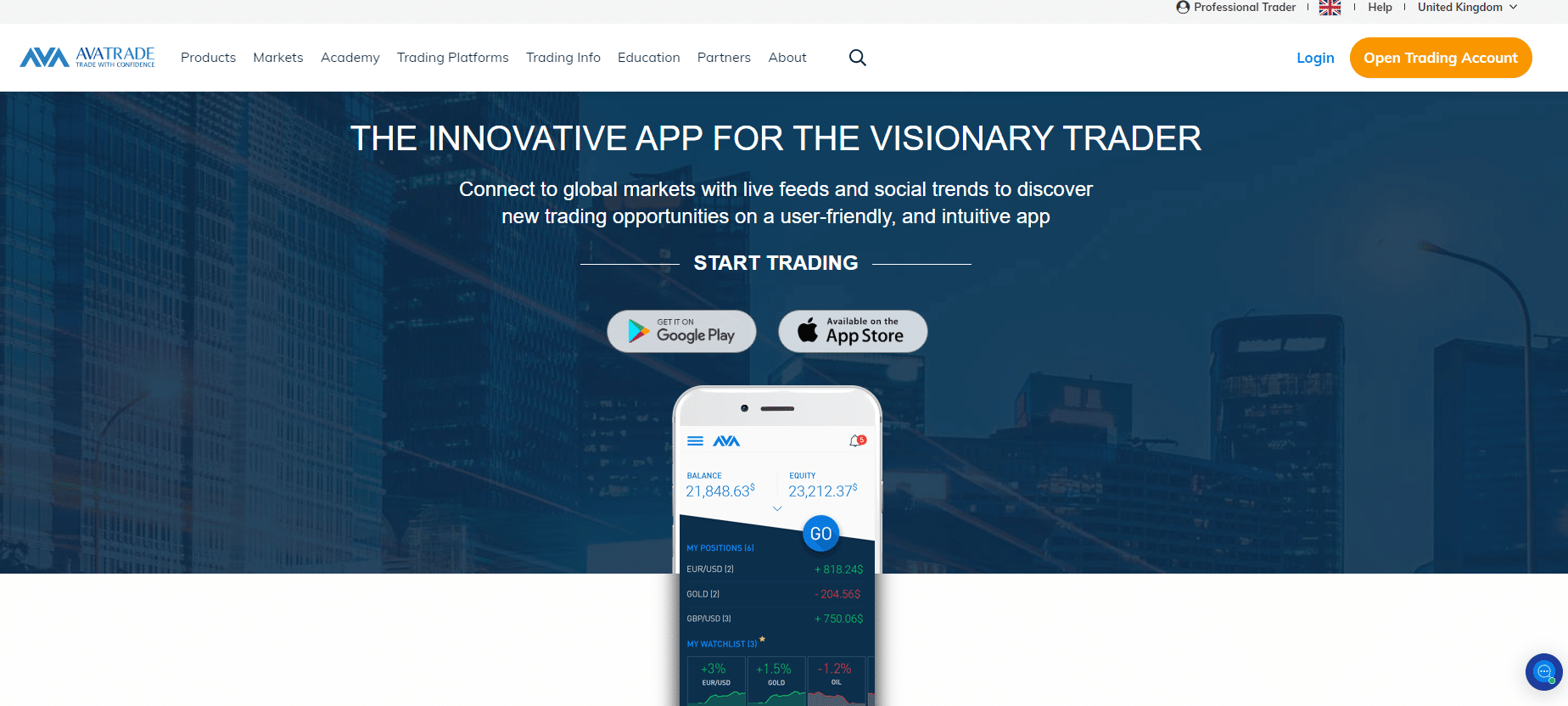
Pros
- Extensive educational resources
- Risk management tools like AvaProtect
- Multiple trading platforms, including MT4 and MT5
Cons
- Limited futures market depth
- Wider spreads than some peers
- No direct UK stock exchange access
What Are the Fees and Costs of This Broker?
AvaTrade charges no commissions, relying instead on spreads that can be wider than competitors. Financing fees apply to leveraged positions. Its transparent pricing is beginner-friendly, but active futures traders may find costs higher than discount brokers such as Interactive Brokers.
Which Platforms and Tools Does This Broker Offer?
AvaTrade supports MT4, MT5, AvaTradeGO, and WebTrader. It offers educational content, demo accounts, and unique risk tools like AvaProtect. While user-friendly, it lacks the advanced analytics and customisation of professional-grade platforms like Saxo or Interactive Brokers.
Is This Broker FCA-Regulated and Safe to Use?
AvaTrade is not FCA-regulated but is licensed in multiple jurisdictions. It segregates client funds and follows strict compliance. Its long-standing reputation and strong emphasis on trader protection make it a reliable, secure option for beginners and intermediate futures traders.
Who Is This Broker Best Suited For?
AvaTrade is best for beginners and intermediate traders who prioritise education and accessible platforms. It’s ideal for cautious traders seeking integrated risk management, though not suited for professionals needing deep futures market access or the lowest trading costs.

Trading 212 – Commission-Free Trading with Intuitive Interface
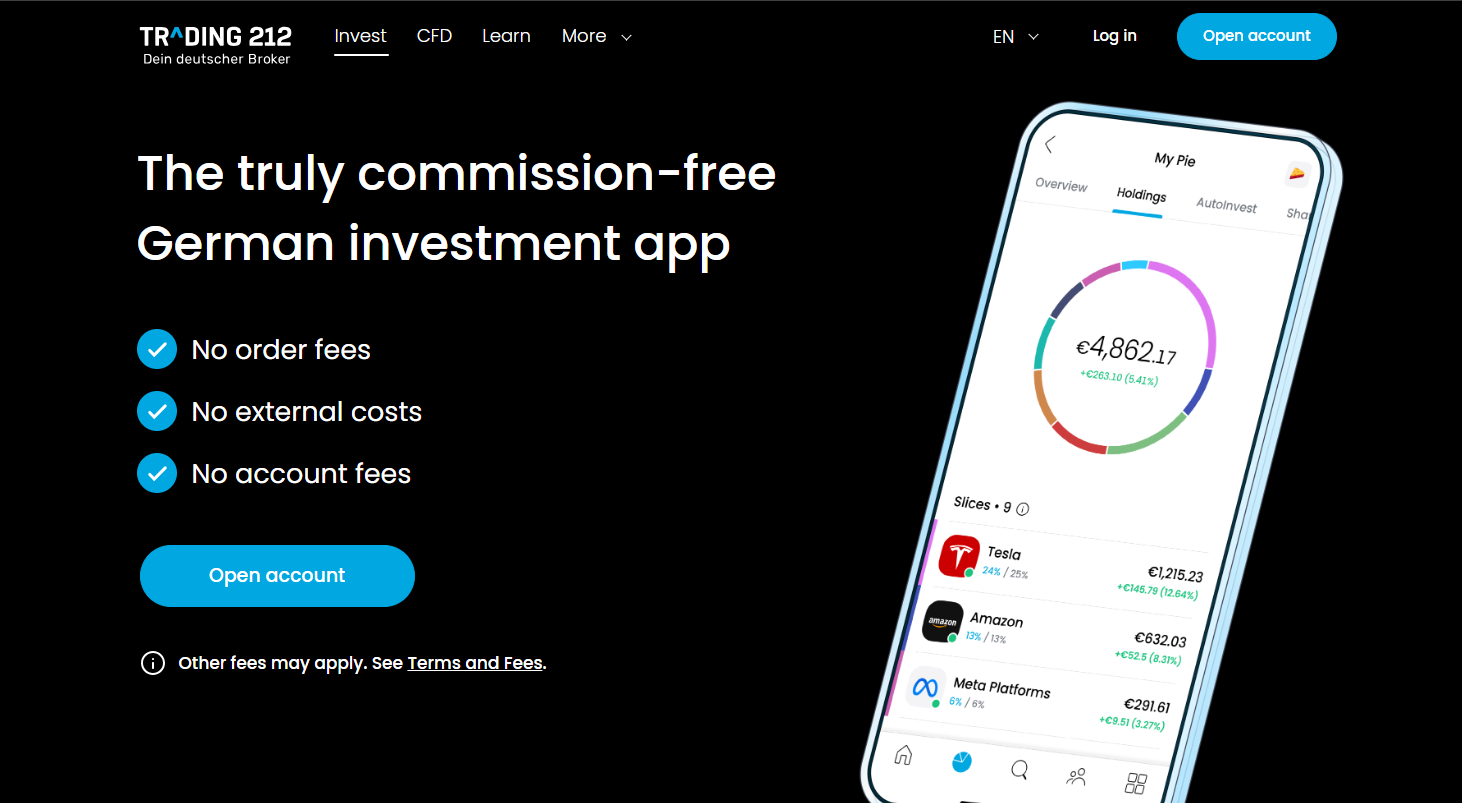
Pros
- Commission-free* trading
- Very intuitive, mobile-first platform
- FCA-regulated and widely trusted in the UK
Cons
- Limited futures-specific features
- Less suitable for advanced traders
- Narrower market access than global competitors
What Are the Fees and Costs of This Broker?
Trading 212 offers commission-free* trading, making it cost-effective for casual traders. While spreads apply, they’re generally competitive. No inactivity or withdrawal fees are charged, making it one of the most accessible brokers for retail futures traders in the UK.
Which Platforms and Tools Does This Broker Offer?
Trading 212’s mobile and web platforms are simple, fast, and highly intuitive. Features include real-time data, smart order execution, and educational materials. However, it lacks advanced futures-specific tools, making it less appealing for professional or high-volume traders.
Is This Broker FCA-Regulated and Safe to Use?
Yes. Trading 212 is FCA-regulated, ensuring strict oversight, segregated client funds, and robust protection. It has a strong safety record, but like all brokers, trading futures involves risks due to leverage and market volatility.
Who Is This Broker Best Suited For?
Trading 212 is ideal for beginners and casual traders seeking commission-free* access and ease of use. It’s best for those wanting simplicity and affordability, but advanced futures traders may prefer brokers offering deeper tools, research, and professional-grade platforms.
What Should You Consider When Choosing a Futures Broker?
Choosing the right futures broker requires balancing costs, safety, and features. Regulation ensures protection, while fees affect long-term profitability. Platform usability and trading tools matter for performance. A broker should match your experience, trading style, and risk tolerance for the best outcome.
What Are the Key Features of Top-Rated Futures Brokers?
Top futures brokers offer FCA regulation, competitive fees, strong execution, diverse markets, and reliable platforms. Educational support and demo accounts are useful for beginners. Professionals typically prefer brokers with deep liquidity, advanced order types, and detailed risk-management tools for complex strategies.
Why Does Regulation and Safety Matter When Picking a Broker?
Regulation by the FCA ensures brokers segregate client funds, maintain financial stability, and follow strict compliance. Safety features like 2FA, withdrawal controls, and transparent reporting reduce risks. Without regulation, traders face higher risks of fraud, insolvency, or poor dispute resolution.
What Fees and Hidden Costs Do Futures Brokers Charge?
Brokers may charge spreads, commissions, overnight financing, withdrawal fees, and inactivity fees. Low-cost brokers appeal to active traders, but higher-fee brokers may offer premium research and tools. Transparency is vital — hidden charges can erode profitability, especially for frequent futures trading strategies.
What Exactly Is Futures Trading?
Futures trading involves contracts to buy or sell assets at a set price on a future date. It allows speculation on market moves or hedging risk. Futures cover commodities, indices, and currencies, making them versatile but often high-risk financial instruments.
How Does Futures Trading Actually Work?
Traders enter futures contracts with standardised terms on exchanges. Profit or loss depends on price changes between contract initiation and expiry. Positions can be closed before expiry or rolled over. Leverage amplifies gains and losses, making futures both attractive and risky.
Why Do Investors Trade Futures?
Investors trade futures for speculation and hedging. Speculators aim to profit from price moves, while hedgers offset risks in commodities, currencies, or indices. Futures also provide portfolio diversification and leverage, though they demand careful risk management due to volatility and potential losses.
Leverage Impact on Futures Trading: Example
| Leverage | Initial Margin Required | Market Movement (5%) | Profit/Loss on Position |
|---|---|---|---|
| 1:1 | £10,000 | +£500 | +£500 |
| 2:1 | £5,000 | +£500 | +£1,000 |
| 5:1 | £2,000 | +£500 | +£2,500 |
| 10:1 | £1,000 | +£500 | +£5,000 |
Final Thoughts: Best Futures Brokers in the UK 2026
The leading futures brokers in the UK for 2026 are IG for seasoned traders, eToro for newcomers, SpreadEX for those who prefer a UK-centric approach, Interactive Brokers for institutional-level tools, Saxo for premium platforms, AvaTrade for trader education, and Trading 212 for low-cost simplicity.*
*Other fees may apply. See terms and fees.
FAQs
What is a futures broker, and how do they work?
A futures broker provides the platform and tools to trade futures contracts — agreements to buy or sell an asset at a set price on a future date. They act as intermediaries, offering access to global markets, risk management features, and trading support.
Can I trade futures as a beginner?
Yes, many brokers like eToro, AvaTrade, and Trading 212 offer demo accounts, educational hubs, and user-friendly platforms to help beginners get started. Just make sure to understand the risks, especially when trading with leverage.
What fees should I expect when trading futures?
Fees can include brokerage commissions, spreads, futures contract fees, data fees, and overnight charges. Some brokers are commission-free, but it’s important to review each platform’s full pricing structure to avoid surprises.
Are UK futures brokers regulated?
Yes — top brokers like IG, SpreadEX, and Interactive Brokers are regulated by the Financial Conduct Authority (FCA). This ensures strong client protections such as segregated funds, negative balance protection, and compliance with strict financial rules.
Which broker is best for low-cost futures trading?
If keeping costs down is a priority, Interactive Brokers is known for low commissions and margin rates. SpreadEX and Trading 212 also offer commission-free structures and tight spreads, making them great for cost-conscious traders.
